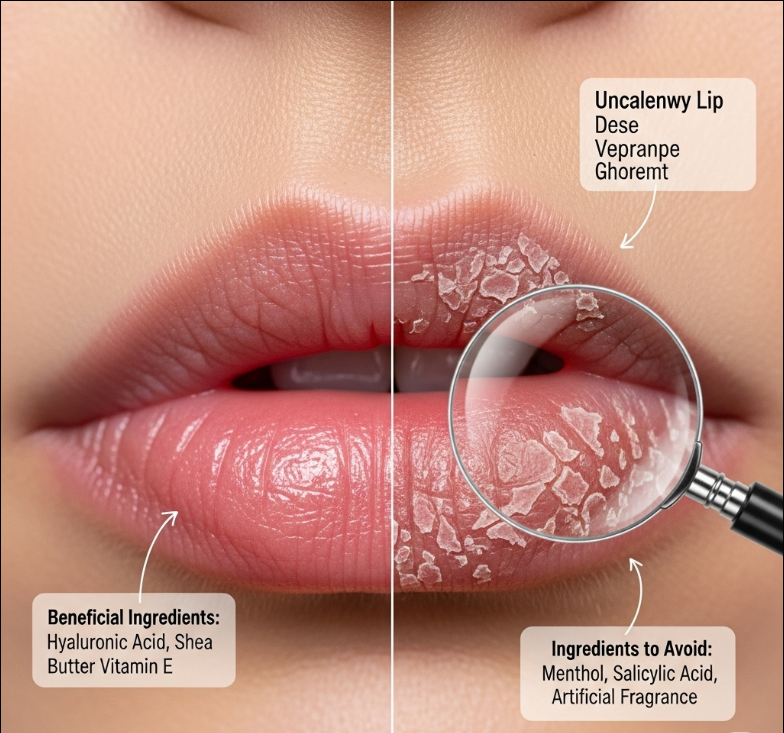
Lip Service: What NOT to Put on Your Lips for Long-Term Health and Beauty
TrueBliss SkincareOur lips are often the forgotten heroes of our faces. Constantly exposed to environmental elements, talking, eating, and smiling, they endure a lot. Yet, the delicate skin on our lips is much thinner and more sensitive than the rest of our face, lacking oil glands to keep them naturally moisturized. This makes them particularly vulnerable to harsh ingredients found in many common lip products, which can lead to dryness, irritation, and even more significant concerns over time.
Given how frequently we apply lip balms, lipsticks, and glosses – and inevitably, ingest a small amount – understanding what we're putting on our lips is not just a beauty choice, but a health choice. Let's delve into the world of lip product labels and identify the chemicals you should consider avoiding for truly healthy, happy lips.
Why Be Wary of Certain Lip Product Chemicals?
The primary concern with harmful chemicals in lip products stems from:
-
Ingestion: Unlike a face cream that largely stays on the skin, lip products are often licked off, eaten with food, or simply absorbed, leading to internal exposure.
-
Thin Skin Barrier: The thinness of lip skin means ingredients can penetrate more easily, potentially leading to faster absorption into the bloodstream.
-
Irritation & Dryness: Many harsh chemicals can strip the delicate lip barrier, causing chronic dryness, cracking, peeling, and irritation – the very problems we're trying to fix!
-
Potential Long-Term Health Concerns: Some chemicals have been linked to broader health issues with prolonged exposure.
Key Chemicals to Consider Avoiding in Your Lip Products:
-
Parabens (e.g., Methylparaben, Propylparaben, Butylparaben):
-
What they are: Common preservatives used to prevent bacterial growth in cosmetics.
-
Why avoid: They are known as xenoestrogens, meaning they can mimic estrogen in the body and have been linked to potential endocrine disruption. For sensitive lip skin, they can also be an irritant.
-
-
Synthetic Fragrances (often listed as "Fragrance" or "Parfum"):
-
What they are: A complex cocktail of often hundreds of undisclosed chemicals, used to create a scent.
-
Why avoid: Fragrance is one of the leading causes of allergic reactions and skin irritation in cosmetic products. Since lips are sensitive and prone to dryness, artificial fragrances can exacerbate these issues, leading to chronic chapping or redness. They can also contain phthalates (see below).
-
-
Phthalates (e.g., Dibutyl Phthalate (DBP), Diethyl Phthalate (DEP)):
-
What they are: Chemical plasticizers often used in nail polishes, but also found in synthetic fragrances to make scents last longer.
-
Why avoid: These are endocrine-disrupting chemicals linked to a range of health concerns. Since they are often hidden under "fragrance" or "parfum," choosing fragrance-free or naturally fragranced products helps avoid them.
-
-
Petroleum Jelly, Mineral Oil, Paraffin Wax (Petroleum-Derived Ingredients):
-
What they are: By-products of the crude oil refining process, used as inexpensive occlusives to form a barrier on the skin.
-
Why avoid: While they can temporarily prevent moisture loss, they don't provide any true nourishment or hydration to the lips. Some argue they can create a dependency, leading to a cycle of dryness when not applied. Furthermore, unless highly refined, they may contain contaminants. Natural alternatives offer far more beneficial nutrients.
-
-
Artificial Colors / Synthetic Dyes (e.g., FD&C Red No. 40, Yellow 5 Lake, CI followed by a number):
-
What they are: Chemical dyes used to give lipsticks, balms, and glosses their vibrant hues.
-
Why avoid: Many synthetic dyes are derived from petroleum or coal tar and can be skin irritants or allergens. Some are even banned in certain countries due to health concerns. They offer no beneficial properties to the lips.
-
-
Sulphates (SLS - Sodium Lauryl Sulfate, SLES - Sodium Laureth Sulfate):
-
What they are: Harsh detergents that create foam, usually found in cleansers and shampoos. Less common in lip balms, but can appear in lip scrubs.
-
Why avoid: They are extremely drying and irritating, stripping away natural oils and potentially damaging the delicate lip barrier.
-
-
BHA (Butylated Hydroxyanisole) and BHT (Butylated Hydroxytoluene):
-
What they are: Synthetic antioxidants used as preservatives in cosmetics and food.
-
Why avoid: They are classified as possible human carcinogens and endocrine disruptors. Given their potential health risks and the easy ingestion of lip products, it's best to avoid them.
-
How to Become a Label Detective:
-
Read the Ingredient List: Always flip the product over! Ingredients are listed in descending order of concentration.
-
Look for Transparency: Brands that explicitly state "Paraben-Free," "Sulphate-Free," "Fragrance-Free," or highlight natural ingredients are usually more trustworthy.
-
Prioritize Natural Alternatives: Look for ingredients like beeswax, shea butter, cocoa butter, coconut oil, almond oil, jojoba oil, and essential oils for fragrance (where specific essential oils are named, not just "fragrance").
TrueBliss: Your Promise for Pure Lip Care
At TrueBliss, our commitment to your well-being extends to every product we create, especially those for your delicate lips. We meticulously craft our lip balms and other lip care products using only the finest luxurious oils and butters, ensuring deep nourishment and natural protection. You will find no silicones, parabens, mineral oils, petroleum jellies, paraffin wax, or synthetic fragrances in our formulations. Every TrueBliss lip product is made by hand and with love, designed to deliver pure, effective care without compromise.
Making conscious choices about what goes on your lips is a powerful act of self-care. By avoiding these potentially harmful chemicals, you're investing in healthier, happier lips that truly reflect your natural beauty.
